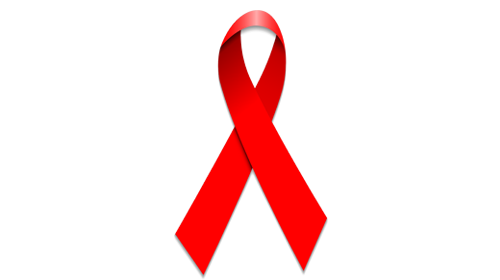
Decades into the HIV epidemic, some government policies continue to misunderstand the actual risk of HIV transmission and to ignore the urgent health care needs of people living with HIV. Here are a few highlights of the ACLU's work on fighting these HIV-related policies all across the country this year.
- Access to HIV-related medications in Illinois jails. When people with HIV are incarcerated, they often face a disruption in access to their medication. While this is a problem for all inmates, it's particularly important not to have a break in HIV drugs, since that can lead to the development of drug-resistant strains of the virus. Arick Buckles faced this problem in an Illinois jail when he was denied his HIV medications for seven days because staff said they were too costly. The ACLU of Illinois recently settled Buckles' claims against the jail with an agreement to change the jail's policies regarding the provision of HIV medications and to train staff on the medical need for uninterrupted access to the drugs. Our next step is to leverage this settlement into broader policy change across Illinois and other states.
- Removing barriers to parenting by HIV+ adults. This spring, a Wisconsin child placement agency initially approved a couple to be foster parents, but then reneged once it learned that one of the adults was living with HIV. We pointed out to the agency that the Centers for Disease Control and Prevention (CDC) and the American Academy of Pediatrics both have made clear that there is no risk of transmission of HIV in typical household settings, that universal precautions protect the children, and that courts have held that policies like the one at this agency violate the Americans with Disabilities Act. The agency has dropped its restrictions on placement with the couple and has already placed several children in their home.
- Ending segregation of HIV+ prisoners in the U.S. We reported last December that, as a result of a lawsuit we filed a federal judge ruled that Alabama's policies of segregating HIV+ prisoners in separate prison housing, barring them from food service work release jobs, and requiring them to wear armbands that identify them as having HIV all violate the Americans with Disabilities Act. We have continued to work with Alabama officials to implement changes to the policies. This summer, they moved the HIV-positive prisoners into the general population at the women's prison, and in early September, they announced that the men's prisons will be integrated in 2014.. And this spring the ACLU helped convince South Carolina prison officials to end their segregation of HIV+ prisoners, which was the last state with such an explicitly discriminatory policy.
- An end to a misguided state law requiring invasion of the privacy of HIV+ students. Illinois was the only state in the country that still had a law requiring state health officials, upon learning that a student tested positive for HIV, to notify the student's principal, who could then disclose the student's HIV status to others at the school. Over 25 years after this law passed in 1987, at the height of AIDS panic nationwide, it's clear that HIV is not transmitted through casual contact at school or playing sports, and that this law invaded student privacy for no good reason. The ACLU's five-year effort to help pass a repeal bill finally worked, and the governor signed it last month.
- Chipping away at the criminalization of having HIV. Minnesota charged Daniel Rick with a crime for having sex while HIV+, even though he had disclosed his HIV status to his partner. The Supreme Court of Minnesota ruled that the state's law banning "knowing transfer of a communicable disease" doesn't apply in such a situation. The court's decision affirms that the government must respect the personal and private decisions of consenting adults regarding sexual intimacy and procreation.
With your help, the ACLU will continue its work to fight government discrimination against people with HIV, to change policies based on irrational fear of HIV exposure, and to end discriminatory barriers to essential HIV-related health care.
Learn more about HIV/AIDS discrimination and other civil liberties issues: Sign up for breaking news alerts, follow us on Twitter, and like us on Facebook.



